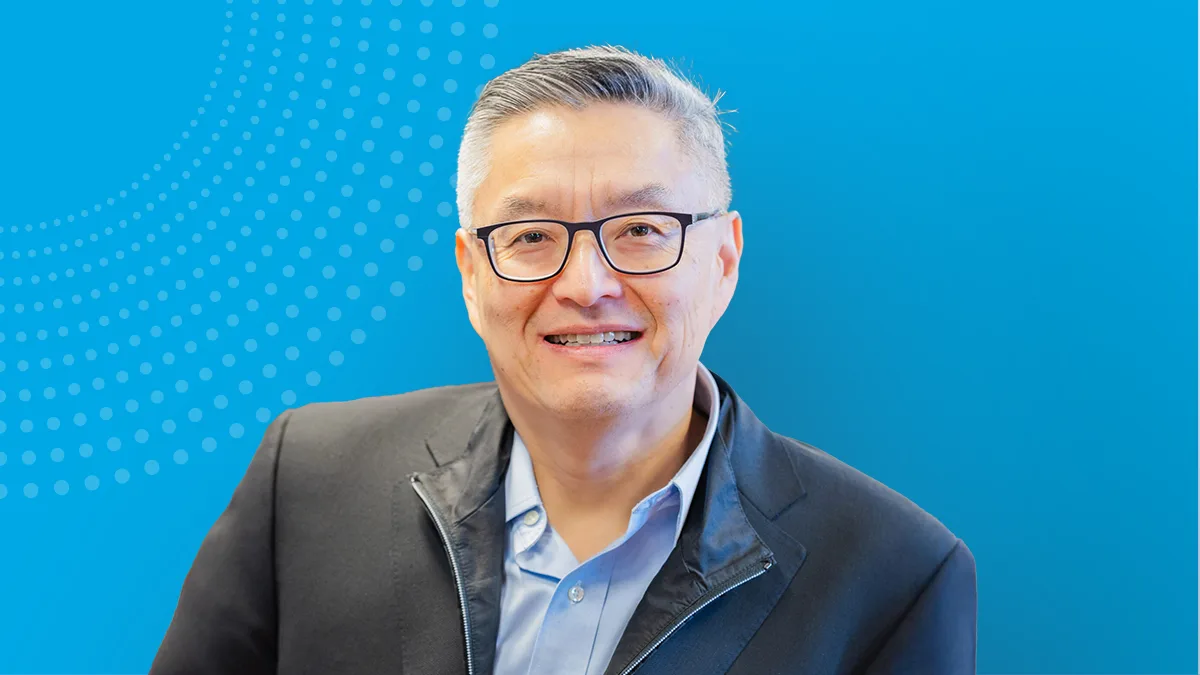
Overview
Distinguished physician-scientist and biotech CEO, William Pao, MD, PhD, highlights the frequently overlooked scientists whose collaborative, multi-generational efforts shape modern drug development.
The drug development story is not one of greed—it’s one of persistence, risk, and the pursuit of better health
In the world of biomedical innovation, few individuals bridge the gap between academia, industry, and biotech as seamlessly as William Pao, MD, PhD.
A physician-scientist with a distinguished career that spans Memorial Sloan Kettering Cancer Center, Vanderbilt University, Roche, and Pfizer, Pao has devoted his life to advancing drug discovery and cancer treatment. Now the CEO and co-founder of the biotechnology company Revelio Therapeutics, Pao is on a mission not only to push the limits of medicine but also to highlight the often-overlooked heroes behind drug innovation.
In a recent discussion with Cure CEO Seema Kumar, Pao explored the motivations behind his newly released book, Breakthrough: The Quest for Life-Changing Medicines. He hopes the book will serve as a tribute to the scientists working tirelessly behind the scenes, an exploration of innovation in drug discovery, and an inspiration for the next generation.
The Unseen Workforce Behind Every Pill
"Every day, there are many scientists working tirelessly—not for fame or money—but simply to make a difference," Pao said. "They deserve to have their stories told."
At the heart of the book is the message that scientific progress is a team sport.
"If you Google ‘scientist,’ you'll see a lone individual peering through a microscope," he said. "But in reality, drug development is an international, multi-generational effort."
From Lab to Patient: The Power of Translational Medicine
Pao’s journey into medicine was deeply personal. His father’s death from metastatic colon cancer when he was only 13 set him on a path to understand and fight the disease. After years of medical and scientific training, he emerged as a pioneer in translational research—the bridge between laboratory discoveries and clinical applications.
"Being both a doctor and a scientist gives you a unique perspective," he said. "You can observe patient responses in the clinic and then take those questions back to the lab to find answers. That cycle of discovery is critical."
He emphasized that every effective drug sits at the intersection of three key factors: biological understanding, clinical insights, and technological advancements.
"You can’t create a medicine without all three," he said. "The challenge in fields like Alzheimer’s research is that we still don’t fully understand the biology. But I’m optimistic that with AI and other new technologies, we’re going to accelerate progress."
The Role of AI and the Future of Drug Discovery
Artificial intelligence is increasingly seen as a game-changer in biomedical research, but Pao remains measured in his expectations.
"There's still a lot of hype," he said. "But AI will absolutely accelerate parts of drug development, particularly in narrowing down potential drug candidates and improving data analysis."
He recalled a recent moment when he used AI to pull up pharmacokinetic data in seconds—a task that previously would have taken hours.
"The potential is enormous," said Pao. "But clinical trials still take time, and serendipity still plays a role in discovery."
Pao’s perspective on AI echoes the broader themes of Breakthrough: science is a long game, requiring persistence, collaboration, and an openness to unexpected discoveries.
"The scientific method isn’t always intuitive to the public," he said. "People want certainty, but in science, you have to be comfortable with ambiguity and iteration."
Inspiring the Next Generation of Scientists
When asked what advice he would give to young scientists, Pao didn’t hesitate.
"Be curious. The biggest breakthroughs often come from simply wanting to understand how nature works," he said.
He pointed to Stuart Orkin, MD, who spent 30 years unraveling the mechanisms behind fetal hemoglobin switching—the process by which the oxygen-carrying protein changes around the time of birth, becoming better suited for breathing air. His discoveries led to the first FDA-approved treatment for sickle cell disease using gene therapy.
"Not everyone is willing to work on a single problem for three decades," he said. "But that kind of perseverance changes lives."
He also stressed the importance of resilience in a field where setbacks are the norm.
"If you're in drug development, you have to accept that failure is part of the process," he said. "For every approved drug, there are hundreds of candidates that didn’t make it."
Changing the Narrative Around the Pharmaceutical Industry
Despite the life-saving impact of drug development, the pharmaceutical industry is often viewed with skepticism.
"People hear ‘big pharma’ and immediately think of high costs and access issues," Pao said. "But what gets lost is the immense effort and investment it takes to bring a drug to market."
He likened the process to "building a bridge with Lego and then trying to build a bridge across the Hudson." While academic and biotech researchers lay the groundwork, large pharmaceutical companies are needed to manufacture and distribute treatments at scale.
“There are bad actors in every industry,” Pao said. “But the bigger story is the collaboration—the ecosystem of academic research, biotech innovation, and large-scale pharmaceutical investment that actually delivers new medicines to the world.”
He believes that changing public perception of pharma requires better storytelling—not just about innovation but also about the human cost of medical breakthroughs. This includes the years of failure, the careers spent chasing a single hypothesis, and the countless unseen researchers dedicated to bringing treatments to those in need. Pao challenged the audience to reconsider their views:
“The next time you take a pill, think about the decades of work, the failures, and the thousands of people behind that single dose. The story of drug development is not one of greed—it’s one of persistence, risk, and the pursuit of better health for all.”







